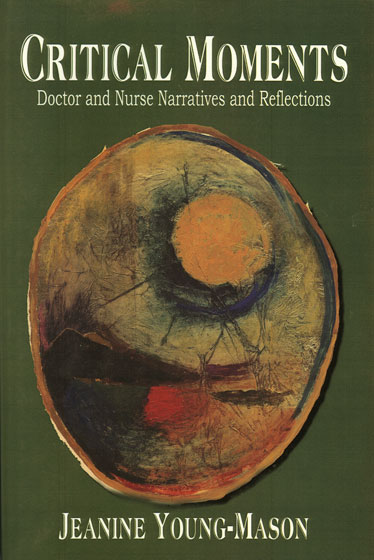 |
 |
Critical Moments: Doctor and Nurse Narratives and Reflections contains four memoirs by doctors and nurses looking back at their long career of service to patients and at the effects of the suffering of others on themselves. Each writes in a different style, blending anecdote with reflection in distinct and varied ways, but each with a sense of immediacy, responsiveness to needs, and instinctive compassion.
All of these accounts present persons who love what they are doing and would never have chosen any other careers. Their minds are present to their patients and reflective for their patients’ sakes. Such “lives” embody understandings beyond the reach of textbooks.
These are highly persuasive lives recorded here. They are also well-rounded, balanced lives despite the specialism of their education and the enormity of suffering they work to alleviate.
When reading these accounts from the perspective of illness and dependency, with all the desperation and fear that suffering arouses, one gains a deep appreciation of the price both nurses and doctors pay to preserve their own humanity. These writers agree in common that they succeed in doing so only through the interchange of their humanity with the humanity of those they serve.
From the foreword by Herbert W. Mason
Cover art by Dino Calavari. Click here for more information.
Memoirs in Critical Moments are by:
Jeanine Young-Mason, Ed.D.,RN,C.S.,F.A.A.N., Distinguished Professor Emerita, University of Massachusetts Amherst and creator and author of the “Nursing and the Arts” Column in Clinical Nurse Specialist and three other books
Michael Ievers Cox, M.D. retired from a long and legendary country practice in Cumbria, Northern England.
He is an avid sailor and popular invited speaker
Laurel Archer Copp, Ph.D., R.N., F.A.A.N. is Professor and Dean Emeritus of the University of North Carolina at Chapel Hill and author of numerous studies on the art and science of nursing and founding editor of The Journal of Professional Nursing.
Lorand Gaspar, M.D. retired from surgical practice in Tunisia. He is a prize-winning author and editor of a bilingual literary journal Alif.
Excerpt from Critical Moments
A Country Practice
By Michael Cox
”It was a winter’s evening when I was called to a cottage in the village. It had been empty for some time and I did not know that it had been rented, neither did I know the young couple there. They were from a town and the house was scarcely furnished, a mattress on the floor with bedding, some boxes, and probably a chair or two, with the window covered with a piece of cloth pinned across it. They were thin, pale, and looked as if more money was spent on cigarettes than on food. She was on the mattress staring at a newborn, very premature baby, she thought about 26-28 weeks gestation but had no true idea of her dates. It was tiny, still attached to the placenta, and was struggling with little short intermittent breaths. All I could do was to separate the placenta, tell the man where the nurse lived and send him for her, stuff the little baby, still covered with blood and mucous inside my shirt front for warmth and drive with it to the maternity hospital fourteen miles away over the hill.
Of all the usually so kind and caring midwives that I knew, the grumpy one was on duty. She had probably had a bad day, for when I produced the poor little thing from my shirt she said flatly “That’s not a baby, that ‘s an abortion.” She was probably right but I found it upsetting. Although tiny, the baby was perfect and during the journey I suppose that I had come a little way to bonding with it. However, there being no other infant life support equipment those days, all we could do was to put it in an incubator and try to keep its airway clear.
There we watched her slowly die.
The journey back was sad. There was the thought of telling her parents, rain on the windscreen turning to wet snow, but not enough of it to lie and look pretty. No moon, no stars.
The couple took their loss with the flat lack of emotion of those for whom nothing has gone right, I felt that it was just one more knock in a life full of failures.
After making sure that the mother was alright and saying that I would call in the morning, I went home, changed my shirt and finished what was left of my Christmas dinner.
The next morning, when I called, they were gone in their old van and I never saw them again.”